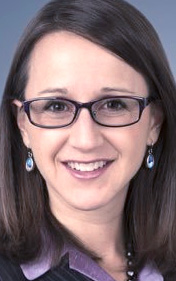

 When the Internet outgrew its academic and research roots and gained some prominence and momentum in the broader telecommunications environment it found itself to be in opposition to many of the established practices of the international telecommunications arrangements and even in opposition to the principles that lie behind these arrangements. more
When the Internet outgrew its academic and research roots and gained some prominence and momentum in the broader telecommunications environment it found itself to be in opposition to many of the established practices of the international telecommunications arrangements and even in opposition to the principles that lie behind these arrangements. more
Accessing Whois information and acting on a litigious domain name is becoming a nightmare for law enforcement agencies. Law enforcement agencies must have an access to the information provided by registrants in the Whois database and, in specific cases, have authority to act FAST on a domain name. The EU has a solution for this and it's coming in 2020. more
 Next Monday, 29 October, most of the formal representatives of the world's nations will convene for three weeks to collectively consider the most significant developments in global network communications networks and services, and make multilateral adjustments in a treaty instrument signed by almost every country at the end. They will also elect heads of the various International Telecommunication Union (ITU) secretariats and permanent bodies for the next four years. more
Next Monday, 29 October, most of the formal representatives of the world's nations will convene for three weeks to collectively consider the most significant developments in global network communications networks and services, and make multilateral adjustments in a treaty instrument signed by almost every country at the end. They will also elect heads of the various International Telecommunication Union (ITU) secretariats and permanent bodies for the next four years. more
 My story begins in ancient times when dinosaurs ruled the earth. It was a time when you could download a movie onto your desktop computer through your 56k dial-up connection if you had a few days. It was a time when more people were on the Minitel in France than on the Internet globally and when the Republic of Korea could fit all of its internet users into one small hotel room. I know because I met them all in that room. more
My story begins in ancient times when dinosaurs ruled the earth. It was a time when you could download a movie onto your desktop computer through your 56k dial-up connection if you had a few days. It was a time when more people were on the Minitel in France than on the Internet globally and when the Republic of Korea could fit all of its internet users into one small hotel room. I know because I met them all in that room. more
 With strong performances across all market segments, the third quarter of 2018 demonstrated that there is still a voracious appetite for IPv4 numbers. At the end of the third quarter this year, the number of IPv4 transactions and volume of IP addresses traded in the ARIN market surpassed third-quarter totals for all prior years. An additional 18 million numbers were transferred in Q3, putting the total for the year at nearly 42 million numbers, a more than 160% jump compared to this same time last year. more
With strong performances across all market segments, the third quarter of 2018 demonstrated that there is still a voracious appetite for IPv4 numbers. At the end of the third quarter this year, the number of IPv4 transactions and volume of IP addresses traded in the ARIN market surpassed third-quarter totals for all prior years. An additional 18 million numbers were transferred in Q3, putting the total for the year at nearly 42 million numbers, a more than 160% jump compared to this same time last year. more
 The nonprofit Alliance for Safe Online Pharmacies (ASOP Global) presented its annual Internet Pharmacy Safety E-Commerce Leadership Award to .DK Hostmaster at the 2018 ICANN63 today in Barcelona, Spain. The domain name administrator for Denmark, DK Hostmaster, was selected for the award based on their commitment to ensuring citizen safety by maintaining transparent WHOIS data, proactively enforcing identity accuracy policies to increase consumer trust and safety online. more
The nonprofit Alliance for Safe Online Pharmacies (ASOP Global) presented its annual Internet Pharmacy Safety E-Commerce Leadership Award to .DK Hostmaster at the 2018 ICANN63 today in Barcelona, Spain. The domain name administrator for Denmark, DK Hostmaster, was selected for the award based on their commitment to ensuring citizen safety by maintaining transparent WHOIS data, proactively enforcing identity accuracy policies to increase consumer trust and safety online. more
 M3AAWG, the Messaging, Malware, and Mobile, Anti-Abuse Working Group and APWG, the Anti-Phishing Working Group, surveyed their members about recent WHOIS changes. With over 300 results from security researchers, it's the broadest report yet on WHOIS use. The survey results confirm our concerns that WHOIS was a vital resource for security research, and its loss is a serious and ongoing problem. more
M3AAWG, the Messaging, Malware, and Mobile, Anti-Abuse Working Group and APWG, the Anti-Phishing Working Group, surveyed their members about recent WHOIS changes. With over 300 results from security researchers, it's the broadest report yet on WHOIS use. The survey results confirm our concerns that WHOIS was a vital resource for security research, and its loss is a serious and ongoing problem. more
 In the weeks leading up to ICANN63, CircleID in collaboration with ICANN invited community members to send their thoughts reflecting on the early days of ICANN and some of the points over the last 20 years that stand out in their memory. And the response was tremendous! Thank you, everyone, for your responses and thoughtful contributions. Below you will find the collection of blogs that we have featured in past weeks. Enjoy! more
In the weeks leading up to ICANN63, CircleID in collaboration with ICANN invited community members to send their thoughts reflecting on the early days of ICANN and some of the points over the last 20 years that stand out in their memory. And the response was tremendous! Thank you, everyone, for your responses and thoughtful contributions. Below you will find the collection of blogs that we have featured in past weeks. Enjoy! more
 Before I go back to the beginning, let me make clear that what follows are my personal observations vis-a-vis how National Association of Boards of Pharmacy (NABP) is managing the .Pharmacy Registry relative to personal experience as founder, President and CEO of Tralliance Corporation, the original manager of the .Travel Registry. My analysis may be a little long, but I promise that if you stay with me, you will be enlightened. more
Before I go back to the beginning, let me make clear that what follows are my personal observations vis-a-vis how National Association of Boards of Pharmacy (NABP) is managing the .Pharmacy Registry relative to personal experience as founder, President and CEO of Tralliance Corporation, the original manager of the .Travel Registry. My analysis may be a little long, but I promise that if you stay with me, you will be enlightened. more
 In order for the Internet to function properly, there has to be "trust". Trust in "online" is something that has ebbed and flowed over the years, but over the past two decades more and more of our daily lives are linked closely to "digital". Our banks encourage us to use online banking and their mobile apps. Government agencies share (and collect) information from private citizens and businesses online. And of course we all do more and more of our shopping online... more
In order for the Internet to function properly, there has to be "trust". Trust in "online" is something that has ebbed and flowed over the years, but over the past two decades more and more of our daily lives are linked closely to "digital". Our banks encourage us to use online banking and their mobile apps. Government agencies share (and collect) information from private citizens and businesses online. And of course we all do more and more of our shopping online... more
 In the early days of the internet, companies only needed a simple web presence to be among the pioneers of digitization. Playfully animated hover buttons and electronically-synthesized background music were commonly accepted standards. To appear on a search engine, webmasters simply had to submit the URL of their website. more
In the early days of the internet, companies only needed a simple web presence to be among the pioneers of digitization. Playfully animated hover buttons and electronically-synthesized background music were commonly accepted standards. To appear on a search engine, webmasters simply had to submit the URL of their website. more
 If you've ever visited or spoken to someone from Australia, there is a good chance you've heard of Australian Rules Football. Those who are followers of Australia's most popular football code are often politely described as 'fanatical', with hundreds of thousands of followers attending games each weekend during the southern hemisphere winter. more
If you've ever visited or spoken to someone from Australia, there is a good chance you've heard of Australian Rules Football. Those who are followers of Australia's most popular football code are often politely described as 'fanatical', with hundreds of thousands of followers attending games each weekend during the southern hemisphere winter. more
 Prior to November 30th of this year, the National Telecommunications and Information Administration (NTIA) must decide whether to renew or allow to expire its Cooperative Agreement with Verisign, the private-sector corporation that operationally controls the root of the Internet.. The Cooperative Agreement is unusually obscure, especially considering its central role in the operation of the Internet's Domain Name System (DNS). more
Prior to November 30th of this year, the National Telecommunications and Information Administration (NTIA) must decide whether to renew or allow to expire its Cooperative Agreement with Verisign, the private-sector corporation that operationally controls the root of the Internet.. The Cooperative Agreement is unusually obscure, especially considering its central role in the operation of the Internet's Domain Name System (DNS). more
 Over the course of the last decade, in response to significant pressure from the US government and other governments, service providers have assumed private obligations to regulate online content that have no basis in public law. For US tech companies, a robust regime of "voluntary agreements" to resolve content-related disputes has grown up on the margins of the Digital Millennium Copyright Act (DMCA) and the Communications Decency Act (CDA). more
Over the course of the last decade, in response to significant pressure from the US government and other governments, service providers have assumed private obligations to regulate online content that have no basis in public law. For US tech companies, a robust regime of "voluntary agreements" to resolve content-related disputes has grown up on the margins of the Digital Millennium Copyright Act (DMCA) and the Communications Decency Act (CDA). more
 I became interested in the global management of the Domain Name System (DNS) in 1991, soon after helping to create commercial Internet Service Providers (ISPs) in Sweden. We moved the Internet Exchange Point (IX) from Academia to the private sector and similarly the management of the SE country code top-level domain. The exercise was fascinating and it really tweaked my interest in the DNS and Internet Protocol (IP) addresses. more
I became interested in the global management of the Domain Name System (DNS) in 1991, soon after helping to create commercial Internet Service Providers (ISPs) in Sweden. We moved the Internet Exchange Point (IX) from Academia to the private sector and similarly the management of the SE country code top-level domain. The exercise was fascinating and it really tweaked my interest in the DNS and Internet Protocol (IP) addresses. more
Sponsored byIPv4.Global

Sponsored byCSC

Sponsored byVerisign

Sponsored byDNIB.com

Sponsored byWhoisXML API

Sponsored byRadix

Sponsored byVerisign
